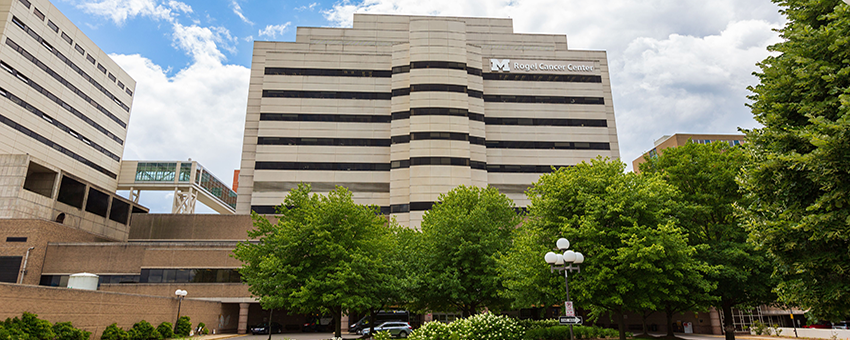3 Rogel researchers receive grants from American Cancer Society totaling $1.16M
Media contact: Nicole Fawcett, 734-764-2220 | Patients may contact Cancer AnswerLine™ 800-865-1125

Funding includes support for cervical cancer screening plus 2 postdoctoral fellowships
ANN ARBOR, Michigan — Three Rogel Cancer Center researchers have received new grants from the American Cancer Society for projects focused on cervical cancer screening, genetic testing and glioblastoma. The grants total $1.16 million.
A Research Scholar Grant for $792,000 will go to Diane Harper, M.D., M.P.H., M.S., professor of family medicine and obstetrics and gynecology at Michigan Medicine, for a project to improve cervical cancer screening intersectionally among women who are Black or Native American and who have a physical disability.
“More than 94% of women with physical disabilities have had sexual activity with a partner in their lifetime, yet they are half as likely to have cervical cancer screening as women who do not have a disability. With this project, we hope to bring newer at-home screening options to women with physical disabilities,” Harper said.
The project will include assembling a dataset using Medicare and Medicaid data to understand cervical cancer screening among women with physical disabilities. From there, researchers will determine the feasibility of self-screening tests among women with disabilities who are Black or Native American, groups who are both more likely to have a physical disability and more likely to develop cervical cancer.
With the knowledge that the human papillomavirus, or HPV, causes cervical cancer, screening has moved from invasive Pap tests to HPV testing. This allows for self-screening kits using vaginal swabs or urine collection. Harper’s previous research has shown women with physical disabilities were more likely to screen for cervical cancer when they could do it themselves with their chosen kit.
The other two American Cancer Society grants will support postdoctoral fellows:
Shelby Hemker, Ph.D., will look at genetic variants in hereditary cancer whose effects are unknown and cannot be used to guide treatment. She will develop new research technologies to test every possible genetic variant in two key tumor suppressor genes underlying familial colorectal and endometrial cancers.
Sravya Palavalasa, MBBS, Ph.D., will study the interaction between immune cells in the brain and glioblastoma cells to understand how the immune cells promote treatment resistance. The goal is to identify a cell type or metabolic pathway that can be targeted to sensitize the tumor to radiation therapy.
The awards are among 131 new Extramural Discovery Science research and career development grants the American Cancer Society announced. The awards support groundbreaking research to understand biological processes of cancer, identify new treatments for patients and optimize care for survivors.
